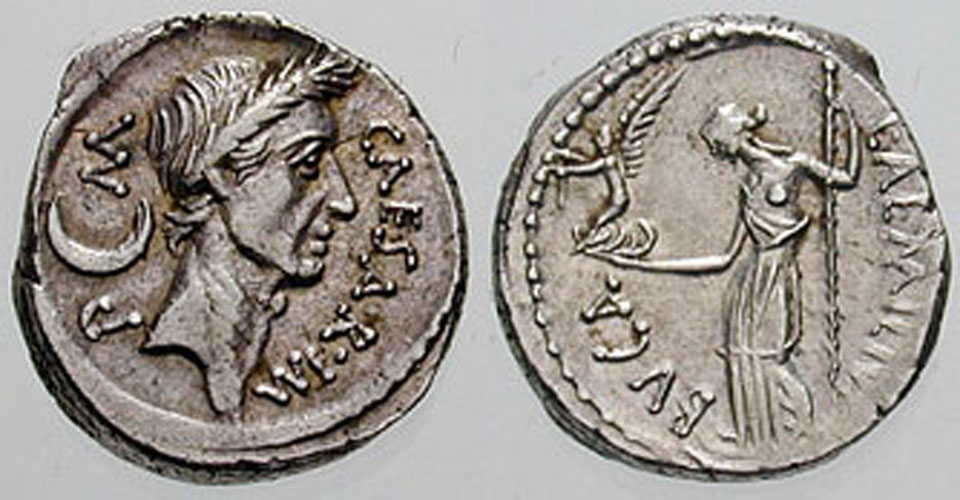
Copyright:
原文:
Today, February 29th, is a leap day – a relatively rare occurrence. In 46 BC, Julius Caesar, featured here in a self-decreed minted coin, created a calendar system that added one leap day every four years. Acting on advice by Alexandrian astronomer Sosigenes, Caesar did this to make up for the fact that the Earth’s year is slightly more than 365 days. In modern terms, the time it takes for the Earth to circle the Sun is slightly more than the time it takes for the Earth to rotate 365 times (with respect to the Sun — actually we now know this takes about 365.24219 rotations). So, if calendar years contained 365 days they would drift from the actual year by about 1 day every 4 years. Eventually July (named posthumously for Julius Caesar himself) would occur during the northern hemisphere winter! By adopting a leap year with an extra day every four years, the calendar year would drift much less. This Julian Calendar system was used until the year 1582 when Pope Gregory XIII provided further fine-tuning when he added that leap days should not occur in years ending in “00”, unless divisible by 400. This Gregorian Calendar system is the one in common use today.
中文翻譯:
今天是二月二十九日,閏日——相對罕見的日子。在公元46年,朱利斯·凱撒(Julius Caesar)鑄造了自我法令的硬幣,建立了一個每四年添加一天閏日的日曆系統。根據亞歷山大天文學家索西根尼斯(Sosigenes)的建議,凱撒這樣做的目的是為了彌補地球一年實際上稍微超過365天的事實。用現代的說法,地球環繞太陽一周的時間略多於地球相對於太陽自轉365次的時間(實際上我們現在知道這約為365.24219次自轉)。因此,如果日曆年份只有365天,日曆會每四年隨著實際年份漂移約1天,最終導致七月(後來以朱利斯·凱撒的名字命名)會在北半球的冬天出現。通過引入每四年增加一天的閏年,日曆年份的漂移將大大減少。這個儒略曆(Julian Calendar)系統一直沿用到1582年,當時教宗格里高利十三世(Pope Gregory XIII)進行了進一步的微調,增加了在以“00”結尾的年份中不應增加閏日,除非這年是400的倍數。現今普遍使用的就是這個格里高利曆(Gregorian Calendar)系統。
#閏日 #朱利斯凱撒 #儒略曆 #格里高利曆 #歷史 #時間 #日曆演變 #LeapDay #JuliusCaesar #JulianCalendar #GregorianCalendar #History #Time #CalendarEvolution
來源:NASA每日圖片


